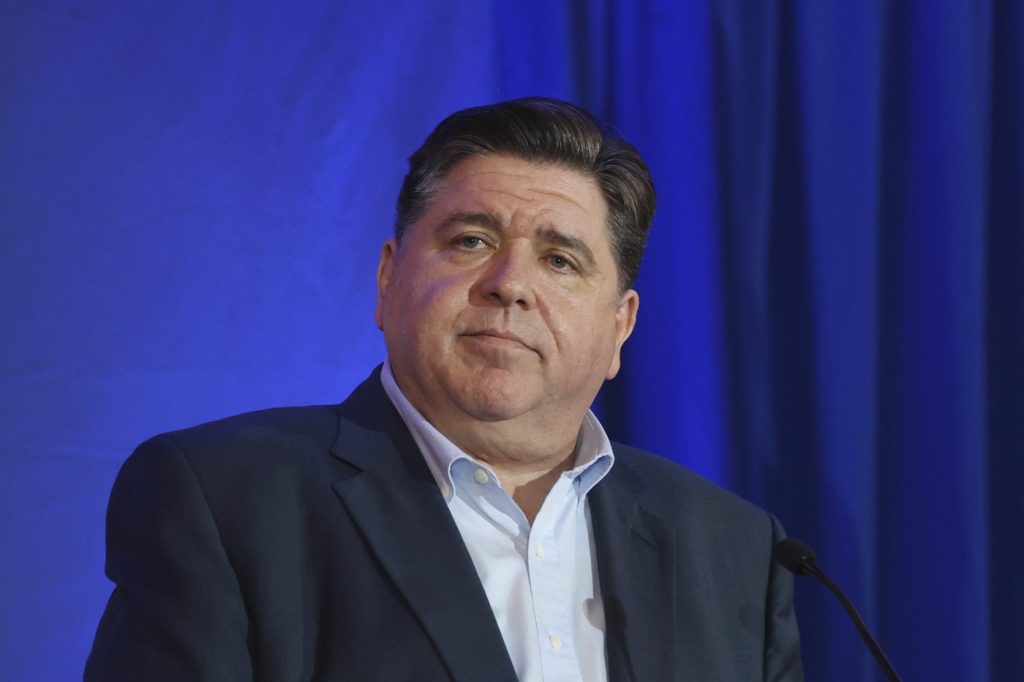SPRINGFIELD, Ill. (AP) - Illinois Governor JB Pritzker has made headlines by signing an executive order that marks the first of its kind in the United States, which aims to prevent the federal government from collecting personal health information related to autism. This decision serves as a direct rebuke to the initiatives proposed during the Trump administration.
Governor Pritzker, a Democrat known for his vocal opposition to Trump’s policies, signed the order last week in an effort to uphold the dignity, privacy, and freedom of individuals living with autism. He emphasized the importance of protecting these individuals from potential surveillance and discrimination.
The executive order was signed shortly after U.S. Health and Human Services Secretary Robert F. Kennedy Jr. unveiled a plan to leverage data from the National Institutes of Health and Medicare and Medicaid claims to identify the causes of autism. Although Kennedy asserted that the plan would adhere to existing privacy laws, critics raised concerns regarding the protection of sensitive health information.
Before his appointment as health secretary, Kennedy had allied himself with anti-vaccine proponents, promoting the discredited idea that childhood vaccines lead to autism. Reputable studies conducted by the U.S. Centers for Disease Control and Prevention and other scientific bodies have decisively refuted this claim.
Pritzker’s executive order specifically prohibits state agencies from sharing personally identifiable data related to autism with external entities unless individuals or their guardians provide consent, the disclosure is mandated by legal proceedings, or it is necessary for services like employment or housing. This restriction extends to state contractors, vendors, and grant recipients as well.
“We are taking steps to ensure that our state remains a leader in protecting the rights of individuals with autism and all people with disabilities,” Pritzker stated, reinforcing his commitment to safeguarding the privacy of vulnerable populations.
Andy Shih, the chief science officer for Autism Speaks—an advocacy organization that funds research and services for autism—expressed that he had not encountered a similar executive order in other states. He also noted that while Kennedy has pledged to comply with privacy regulations, advances in technology could render today’s privacy safeguards ineffective in the future. Shih cautioned that sensitive data could potentially be misused against patients, affecting their constitutionally protected rights.
“There’s always that concern,” Shih remarked, adding that proactive measures to protect privacy are commendable in a society that values individual rights.
Kennedy aims to announce potential causes of autism by September, which is identified as a complex brain disorder that manifests differently in individuals, ranging from profound autism to milder forms affecting social and emotional skills. Experts, however, contend that Kennedy's planned database may not be suitable for uncovering autism’s causes, primarily because it lacks genetic data collection.
Despite this, Shih pointed out that the initiative to establish a database could be beneficial for understanding various chronic illnesses. He referenced a recent study published in the Journal of the American Medical Association that revealed a significantly higher prevalence of dementia among autistic adults over the age of 65 compared to the general population. This information was obtained by linking identifiers from multiple data sets, demonstrating that data integration is a successful method for studying health-related issues.
Overall, Pritzker’s executive order represents a significant step in prioritizing the privacy and rights of individuals with autism in Illinois, especially amidst ongoing debates over health data collection practices at the federal level.












